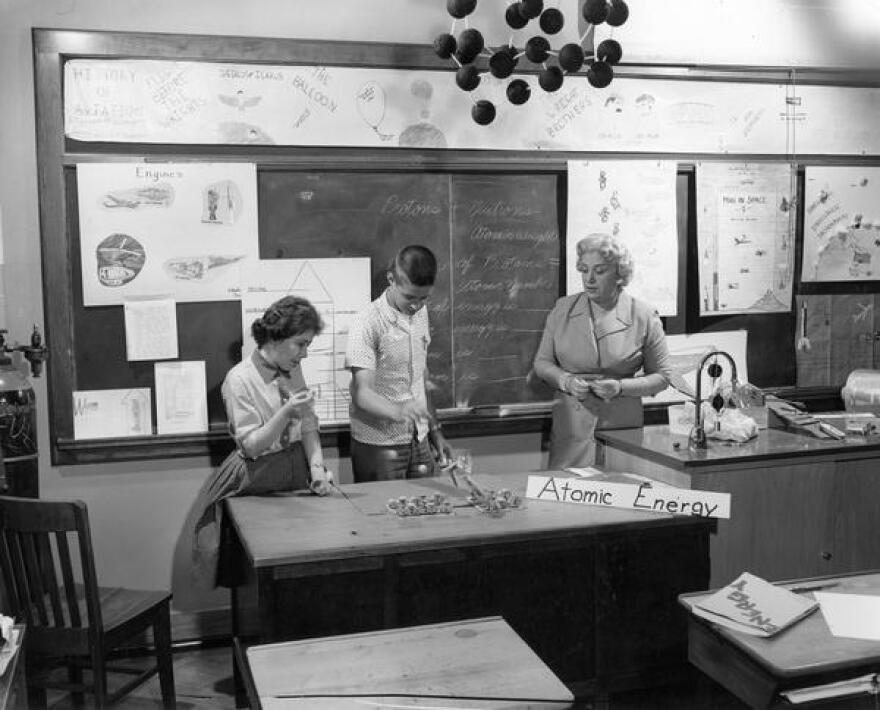The issue of nuclear waste generated by power plants in the United States always seems to be somebody else’s problem. In this week’s Northwoods Moment in History, Gary Entz reminds us how it wasn’t so long ago that it could have been a problem for the Northwoods and could be again in the future.
The beautiful landscape of the Northwoods along with its pristine lakes and streams is something that most people would not associate with a nuclear waste dump. Yet not so long ago that is exactly what the United States Department of Energy had in mind for the region.
What was once known as Atomic Power grew out of the atomic weapons research programs of World War II and the Cold War. The first fission reactor capable of generating electricity came online in 1951 and the first commercial reactor to generate electricity for the public market came online in 1957. By March of 1979, when the accident at Three Mile Island occurred, there were over eighty nuclear reactors that either were or had been in operation in the U.S. with nearly sixty more under construction. Wisconsin had three of those reactors, located at Point Beach, Kewaunee, and La Crosse.
Nuclear power is touted as being clean energy because it has zero emissions; that is, the steam rising from a nuclear cooling tower is just that, water steam. However, fuel rods are usually swapped out every 18 to 24 months. Spent fuel rods remain dangerously radioactive for 10,000 years or longer and must be safely stored. Unused nuclear fuel rods typically spend 7 to 10 years in a pool of water to cool down and are then stored in dry casks either at the power plant site or in a spent fuel storage installation.
Today there eighty sites across dozens of states where nearly 80,000 metric tons of nuclear waste from America’s power plants and military installations is stored.
This is where the Northwoods comes in. By the late 1970s, the Department of Energy wanted a centralized location where all the nation’s nuclear waste could be stored and monitored. In the 1980s, the DOE ranked Wisconsin’s Wolf River Batholith as number two of the top three options for a high-level nuclear waste repository. The Batholith is a 1,000 square mile watershed that extends over seven counties, including Langlade, Shawano, Waupaca, Menominee, Portage, Marathon and Oconto counties, and the land of three tribes, the Stockbridge-Munsee, Menominee and Ho-Chunk. This area was selected due to its stable granite geology and lack of earthquakes. The proposed sixteen square mile facility was dangerously close to popular waterways. If the radioactive materials leaked, then contaminated water could flow into the Wolf River, the Fox River, and on to Lake Winnebago and Lake Michigan.
The people of the Northwoods and all of Wisconsin were overwhelmingly opposed to becoming a nuclear dump for the DOE. In a 1983 statewide referendum, 89 percent voted for a moratorium on nuclear power and a waste disposal site in Wisconsin.
Because of the licensing issues at Yucca Mountain, Nevada, the DOE has been looking for different options, and in 2008 the Wolf River Batholith was again listed as a leading alternative. In 2015, when the state legislature voted to overturn the 1983 moratorium on nuclear power, it also inadvertently lifted to moratorium on a nuclear waste dump.




